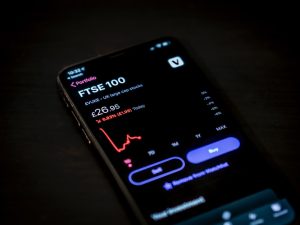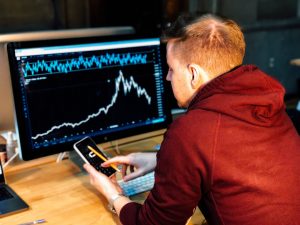Forex trading is a popular method of investing in the financial market, where traders buy and sell currencies to make a profit. However, forex trading is not without its risks, and traders can sometimes lose more money than they have in their trading account. In such cases, traders may end up bankrupting their forex account. In this article, we will explore what happens if you bankrupt a forex account.
What is Bankruptcy in Forex Trading?
Bankruptcy in forex trading occurs when a trader’s account balance falls below the required margin level, and the broker closes out all open positions. The margin is the amount of money required to maintain a position in the forex market. Brokers typically require traders to maintain a minimum margin level to prevent losses from exceeding their account balance.
When a trader’s account balance falls below the required margin level, the broker will issue a margin call, requesting the trader to deposit more funds into their account. If the trader fails to meet the margin call, the broker will close out all open positions to limit the trader’s losses. This process is known as a “margin call,” and it can lead to bankruptcy if the trader cannot meet the margin requirements.
What Happens When You Bankrupt a Forex Account?
When a trader bankrupts their forex account, several things can happen, depending on the broker’s policies and the trader’s actions. Here are some of the possible outcomes of a forex account bankruptcy:
1. Account Closure
When a trader’s account balance falls below the required margin level, the broker may close out all open positions and suspend the trader’s account. This means that the trader will not be able to trade in the forex market until they deposit more funds into their account.
2. Debt Obligations
If a trader’s forex account balance is negative, they may owe the broker money. The broker may pursue legal action to recover the debt, which can result in a court judgment against the trader. In some cases, the trader may be required to pay interest on the debt until it is fully repaid.
3. Damage to Credit Score
If a trader fails to repay their debt to the broker, the broker may report the debt to credit bureaus. This can damage the trader’s credit score, making it more difficult for them to obtain credit in the future.
4. Loss of Capital
When a trader bankrupts their forex account, they lose the capital they invested in the market. This can be a significant financial loss, especially if the trader invested a large amount of money.
How to Avoid Bankruptcy in Forex Trading?
To avoid bankruptcy in forex trading, traders need to manage their risk effectively. Here are some tips to help traders avoid bankruptcy:
1. Set Stop Loss Orders
Stop loss orders are a risk management tool that allows traders to limit their losses by automatically closing out a position when it reaches a certain price level. Traders should set stop loss orders on all their positions to prevent losses from exceeding their account balance.
2. Use Leverage Wisely
Leverage is a double-edged sword that can amplify both profits and losses in forex trading. Traders should use leverage wisely and not overextend themselves, as this can lead to margin calls and bankruptcy.
3. Diversify Your Portfolio
Diversifying a forex portfolio means investing in different currency pairs to spread the risk. This can help traders avoid concentration risk and limit their losses in case of adverse market movements.
4. Keep a Trading Journal
Keeping a trading journal can help traders analyze their past trades and identify their strengths and weaknesses. This can help traders improve their trading strategies and avoid making the same mistakes in the future.
Conclusion
Bankrupting a forex account can have severe consequences for traders, including account closure, debt obligations, damage to credit score, and loss of capital. To avoid bankruptcy, traders need to manage their risk effectively by setting stop loss orders, using leverage wisely, diversifying their portfolio, and keeping a trading journal. By following these tips, traders can minimize their losses and increase their chances of success in the forex market.





